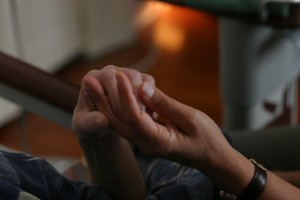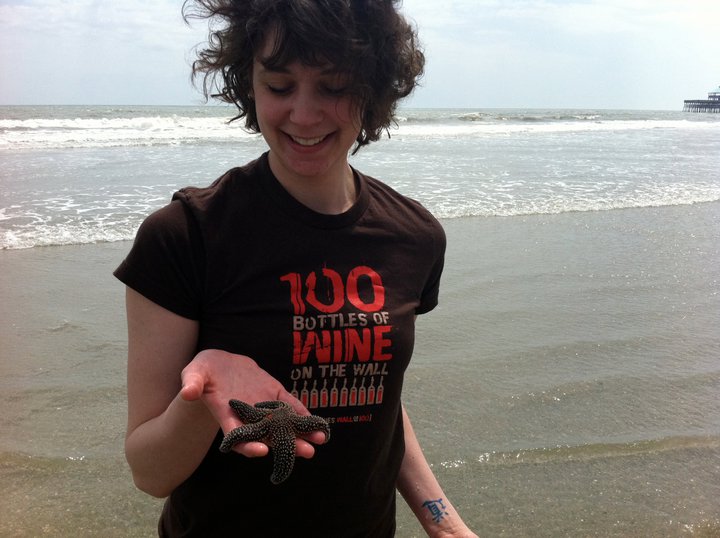This month will mark my last as a blog writer for SevenPonds. I joined this team two years ago as a young writer with little insight into the end-of-life industry, only knowing that I agreed with our founder Suzette that it’s time we change the way we look at death and start talking about this taboo of “end-of-life”.
Over these two years, I’ve spoken with dozens of end-of-life industry experts, people who deal with death every day and people sharing their stories of love and loss. Here are some things I’ve learned that I’ll take with me long after my work here is finished, ideas that come up again and again in these interviews that no one is talking about in the rest of my life:
1. Kids are far wiser and way stronger than we think.
The heart-wrenching topic of children facing life-threatening illness and end-of-life is one we can’t avoid. What I learned talking to experts about it, though, is how incredible these kids can be. Children approaching the end of life display an inspiring wisdom and understanding of their situation, and will often even try to guide their parents through the tough time.
Remember that, even in everyday life, your kids are paying attention. They’re absorbing the information and lessons around them. They have an understanding of life unhindered by the worry that bogs us down in adulthood.
2. The need for care doesn’t end when someone leaves the hospital.
When someone has faced a serious illness, medical care is just one facet of the care they need. Yet, many of us believe that once someone is home from the hospital, all is well, and the family is ready to return to normal life. Often, though, they still need our help and psychological support while their loved one recovers at home. Don’t stop supporting your loved ones just because hospitalization is over.
The same goes for your friends who are grieving the loss of a loved one. Support tends to die down after a few days or weeks have gone by — but, anyone who has suffered such a loss knows that grief runs far beyond that. Continue to check in with friends and family in the months and even years after a loss. Even if you haven’t talked about it in a while, check in on the anniversary of a death, when grief is often re-triggered.
3. The conversation about end-of-life care is easier than we think.
“Death” feels like such a nasty, heavy word to so many of us. But it doesn’t have to be! It is a reality of life that we will all experience with our loved ones and will eventually face ourselves. Yet, many of us face death and loss unprepared, because we were never able to talk about it.
In reality, the conversation doesn’t have to be so hard to broach. You don’t have to drop heavy news on your family or delve into deep after-death philosophy with friends in order to have an honest, constructive conversation about end-of-life. Broach it through less threatening topics like, “What makes you happy in life?” The conversation about death is really a conversation about life — once you accept that, it’s not so hard to get into.
4. Palliative care isn’t just for end-of-life.
 In my conversation with Helen McNeal of the CSU Institute for Palliative Care, I was shocked to learn that medical professionals had once resisted talking about preventative care in the same way many now resist palliative care. (Was that shocking to you to read, or does that expose my youth?)
In my conversation with Helen McNeal of the CSU Institute for Palliative Care, I was shocked to learn that medical professionals had once resisted talking about preventative care in the same way many now resist palliative care. (Was that shocking to you to read, or does that expose my youth?)
Preventative care is commonplace (and common sense) now; we don’t have to wait for illness to strike to talk to doctors about our risk. Palliative care can be the same way. Talking to your doctor about care to ease your pain during an illness doesn’t mean you’re asking him to prepare you for death.
5. Doctors are trained to treat disease, not patients.
One of the reasons conversations like the one about palliative care (see #4) are so difficult to have with medical professionals is because these are not conversations aimed at cure. And doctors are trained to cure your disease — not care for you in spite of it.
Unfortunately, this shortcoming in our current medical paradigm is as detrimental to doctors as it is to patients. When your doctor focuses only on attacking your ailments, you will likely not receive the kind of care you need to live comfortably if he’s unable to vanquish them. And, because his goal is to cure the disease, anything short of that feels like a failure — when, in reality, he can do you a world of good by offering palliative care.
6. In overwhelming numbers, people want to die comfortable and happy, not fighting a losing battle.
It’s no secret in the end-of-life industry that most people, when polled, will respond that they prefer to die comfortably at home, not battling a disease in a hospital. Yet, most of those same people have not taken the necessary steps to ensure that happens.
Starting the conversation about your end-of-life care wishes early is vital to ensuring they’re honored. Have the conversation early and often with your loved ones, and encourage them to do the same. Also educate yourself and those around you about Advanced Care Directives and Physician Orders for Life-Sustaining Treatment, so you can dot all the i’s and cross the t’s now to ensure your wishes are honored when you’re no longer able to discuss them.
7. There is no one right way to die.
 Over these two years, this message has been inherent in all the work I’ve done with SevenPonds. There is no one “right” way to die, just as there is no one “right” way to live. Choose your end-of-life experience the same way you’re choosing your life experience; everyone has a right to this freedom.
Over these two years, this message has been inherent in all the work I’ve done with SevenPonds. There is no one “right” way to die, just as there is no one “right” way to live. Choose your end-of-life experience the same way you’re choosing your life experience; everyone has a right to this freedom.
Whether this message resonates with your choices about end-of-life health care, with your requests for disposition, or with the way you approach life starting today, remember that you have the right (and responsibility) to shape this step in your life just like any other.
8. There is no right way to grieve.
Just as your death is your own, so is your grief after the death of a loved one. The so-called seven stages of grief are a myth; everyone experiences grief differently, and everyone heals from grief at a different pace.
When you feel it’s been “too long” or it’s time to “get over it”, remember this is simply how you are experiencing your loss. Remind loved ones of this when they feel they’re not grieving “the right way”, as well.
9. Dying well is an effect of living well.
If the end of life is simply one phase of life, then the way you experience it will most certainly be an effect of the way you’ve experienced the rest of your life. Living life fully and mindfully will help you approach death the same way. When you can be satisfied and fully understand life, you can embrace the end of life and experience loss more holistically.
Readers, many of you, too, have been with us as we’ve grown over the years. What is the greatest lesson you’ve learned about life or death from SevenPonds?

 9 Facts About Life I’ve Learned from Writing About Death
9 Facts About Life I’ve Learned from Writing About Death




 How to Comfort A Dying Loved One
How to Comfort A Dying Loved One
 Our Annual Seven Holiday Gifts for Someone Who Is Grieving, 2024 Edition
Our Annual Seven Holiday Gifts for Someone Who Is Grieving, 2024 Edition














